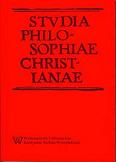Nature and necessity in Aristotle’s "Physics"
Nature and necessity in Aristotle’s "Physics"
Author(s): Jarosław OlesiakSubject(s): Philosophy, Ancient Philosphy, Ontology
Published by: Wydawnictwo Naukowe Uniwersytetu Kardynała Stefana Wyszyńskiego w Warszawie
Keywords: Aristotle; ancient philosophy; metaphisycs; teleology; hypothetical necessity; nature; physicalism
Summary/Abstract: In Physics II.8 Aristotle claims that the type of necessity found in natural processes is not simple necessity as the ancient physicalists maintained, but hypothetical necessity. The article first considers the textual context within which this issue arises. Then it examines two basic elements of Aristotle’s conceptual apparatus, nature and necessity. It considers his understanding of nature as an inner source of activity and calls attention to the ontological problem of the location of this source within the very entity whose source it is. Next, it examines the various sorts of necessity that Aristotle distinguishes, identifies the sense of necessity that is at work in the ancient physicalist account of natural coming to be, and contrasts it with the hypothetical necessity he proposes. It points out that there remains the unresolved problem of Aristotle’s use in the natural domain of the simple necessity that he elsewhere explicitly reserves to the realm of the unchanging and eternal.
Journal: Studia Philosophiae Christianae
- Issue Year: 51/2015
- Issue No: 1
- Page Range: 55-73
- Page Count: 19
- Language: English

